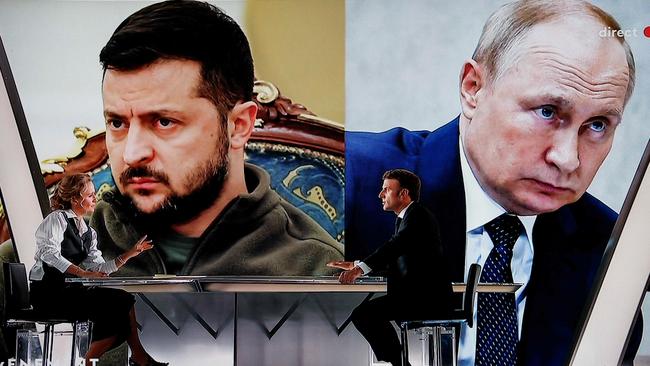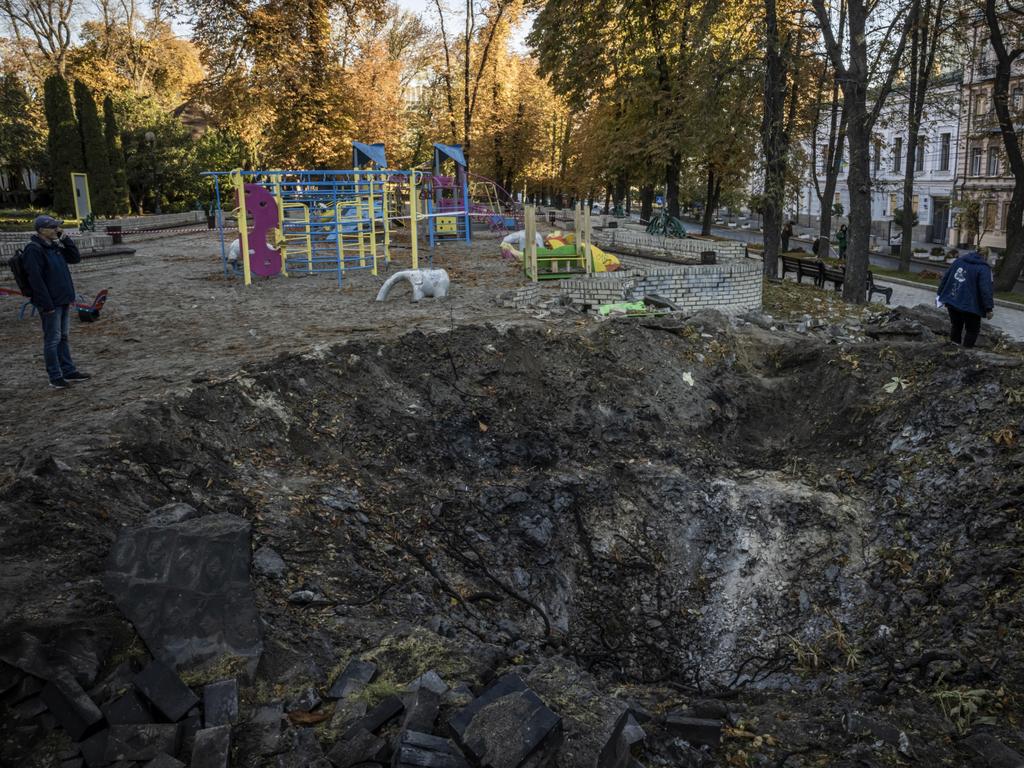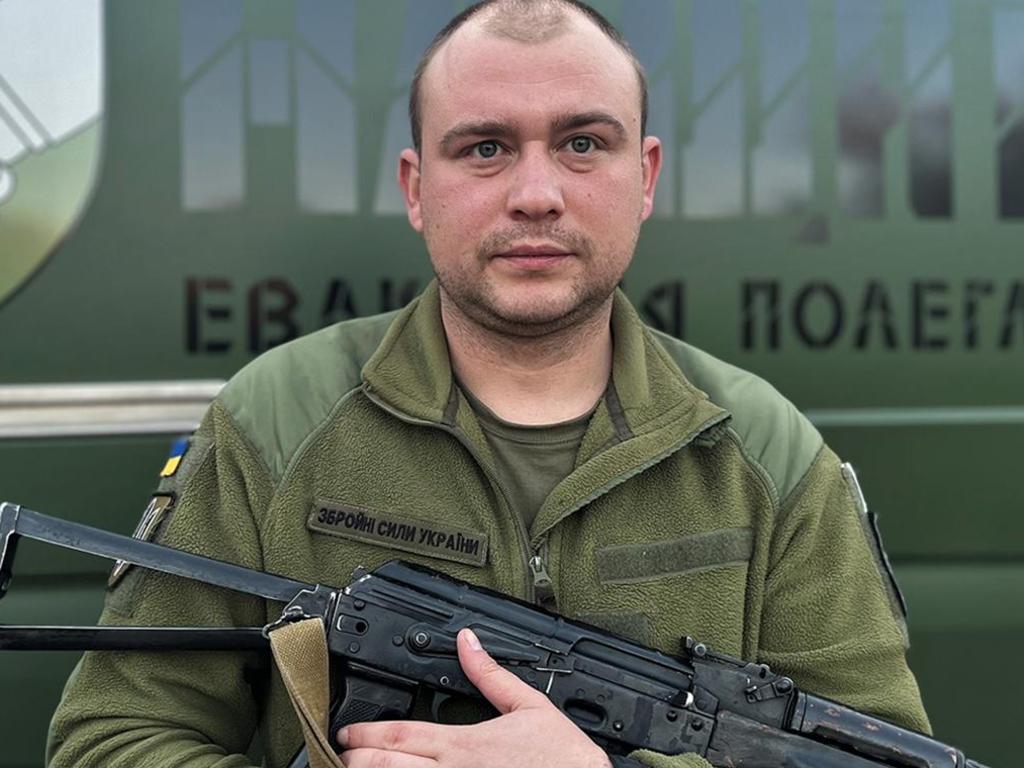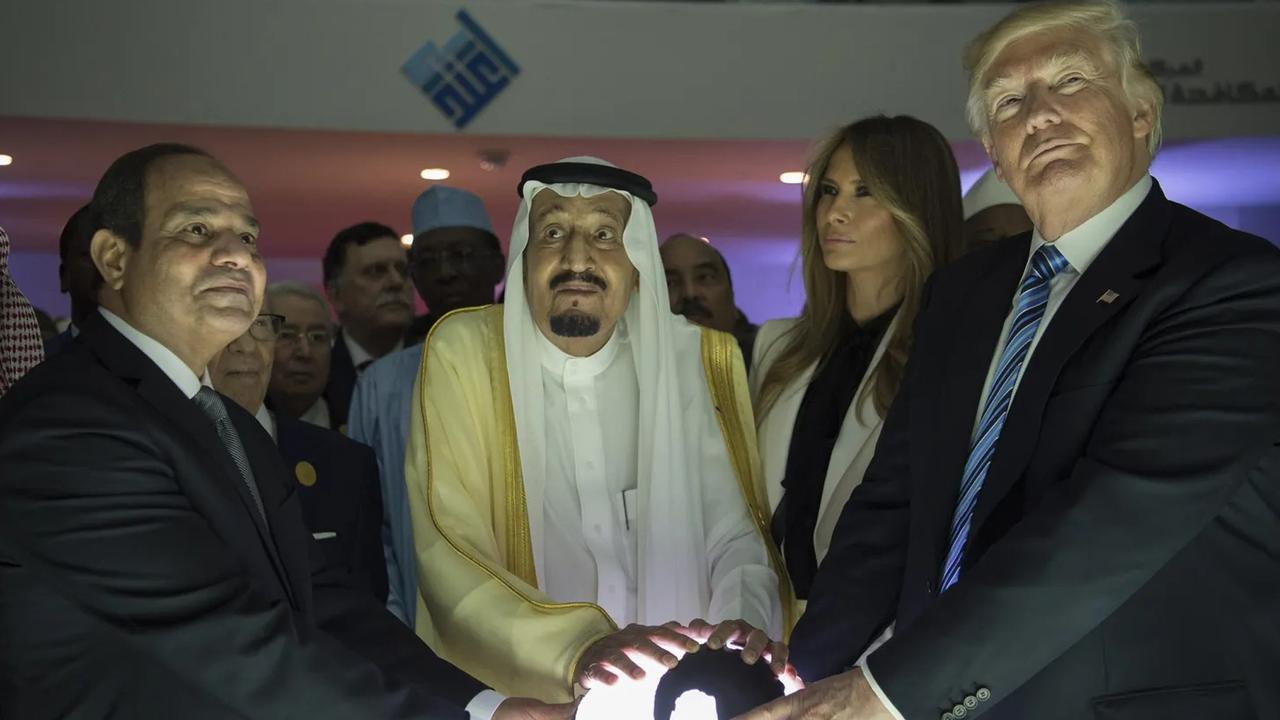Macron breaks ranks by ruling out nuclear option over Ukraine
The French President says France wants to avoid ‘global war’ and will not use its independent nuclear deterrent against Russia.

President Emmanuel Macron has revealed cracks in the Western alliance by ruling out a nuclear response if Russian President Vladimir Putin attacks Ukraine with atomic weapons.
Discussion of specific nuclear deterrence scenarios or policy is usually taboo in the US, Britain, France and NATO because, a senior official said, it “reveals your hand” to Russia.
Speaking on French television on Thursday, Mr Macron said that he wanted to avoid “global war” and that France would not use its independent nuclear deterrent against Russia if Mr Putin ordered atomic missile strikes on Ukraine or “the region”.
He told the France 2 public broadcaster: “Our doctrine rests on the fundamental interests of the nation. They are defined clearly and wouldn’t be directly affected at all if, for example, there were a ballistic nuclear attack in Ukraine, in the region.”
As the first leader of a nuclear power to define policy on Russian nuclear threats against Ukraine, Mr Macron’s comments are widely seen as unhelpful, particularly his use of “region” to describe Ukrainian territory, which is largely bordered by NATO allies Poland, Slovakia, Hungary and Romania.
“The declaration harms the security of Europe, emboldens, and even encourages, Russia to aggression, and nullifies the significance of having France as an ally,” said Jacek Saryusz-Wolski, a Polish member of the European parliament.
EU foreign affairs chief Josep Borrell emphasised that an atomic attack on Ukraine would not provoke nuclear war but would trigger an overwhelming conventional military response.
“Putin is saying he is not bluffing. Well, he cannot afford bluffing, and it has to be clear that the people supporting Ukraine and the EU and the member states, and the US and NATO are not bluffing either,” Mr Borrell said. “Any nuclear attack against Ukraine will create an answer, not a nuclear answer, but such a powerful answer from the military side that the Russian army will be annihilated.”
Officials in NATO, which held a meeting of defence ministers in its nuclear planning group on Thursday, do not discuss specific deterrence doctrine or scenarios that are top secret. “We don’t want to talk about it publicly because one of the principles of deterrence is you don’t reveal your hand,” a senior source said.
France is not on the NATO committee and, like Britain, has an independent nuclear deterrent, but Mr Macron’s comments will be seen as having potential revealed Western nuclear policy.
NATO secretary-general Jens Stoltenberg has said publicly several times this month that the alliance has conveyed clearly to Russia that it would face severe consequences if it used nuclear weapons, including low-yield nuclear weapons, in Ukraine.
Mr Putin has threatened to use “all weapon systems available” to defend Russian territory, which he claims includes four regions of Ukraine illegally annexed last month.
Russia has 2000 “low-yield” nuclear weapons, which range in strength from 1 to 10 kilotons of high explosive, compared with “high-yield” missile warheads ranging from 100 to 1000 kilotons. The bomb dropped on Hiroshima by the US in 1945 had a yield of 15 kilotons. Even a 1-kiloton blast would destroy all buildings and kill everyone in a near-1km radius.
Next week NATO will carry out its annual “Steadfast Noon” nuclear exercise, held this year in Belgium. The manoeuvres are so secret that until last year their existence was classified. In the context of the NATO exercise, to be followed by Russian nuclear manoeuvres over a fortnight, Mr Macron warned against the dangers of nuclear rhetoric, with comments mainly aimed at Mr Putin but also at Western partners.
“We have a doctrine that is clear,” the French president said. “The dissuasion is working. But then the less we talk about it, the less we brandish the threat, the more credible we are. Too many people are talking about it.”
British Defence Secretary Ben Wallace said the NATO nuclear exercise, which involves fighter jets training with dummy US tactical B61-12 nuclear weapons, was routine. “It’s all about readiness, about making sure we are ready for anything. That is the job of this alliance – to make sure that the 30 partners together are ready for what is thrown at us,” he said.
According to leaks in the Belgian press, the NATO exercises involving 14 countries and up to 60 fighter jets from 10 allies will take place at Belgium’s Kleine Brogel air force base next week.
Pilots will train to drop nuclear weapons and ground crew will practise transporting bombs from underground bunkers and attaching them to aircraft.
Although never officially confirmed, NATO’s tactical nuclear weapons are also stored at Volkel in the Netherlands, Aviano and Ghedi in Italy – where the exercise took place last year – and Buchel in Germany.
The Times






To join the conversation, please log in. Don't have an account? Register
Join the conversation, you are commenting as Logout